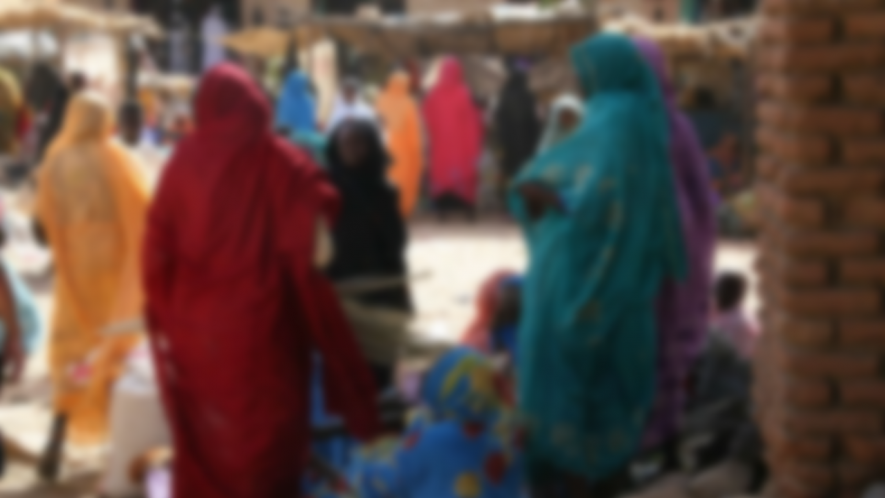Hundreds of Millions of Women Have No Bodily Autonomy: UN Report

Representational image. | Image Courtesy: flickr
Almost half of women in 57 countries around the world cannot make informed choices over their healthcare, contraception, or sex lives, revealed a new report by the United Nations Population Fund (UNFPA) that was published on Wednesday.
“The fact that nearly half of women still cannot make their own decisions about whether or not to have sex, use contraception or seek healthcare, should outrage us all”, Natalia Kanem, UNFPA Executive Director, told the media while releasing the State of World Population 2021 report.
“In essence, hundreds of millions of women and girls do not own their own bodies. Their lives are governed by others”, Kanem added. She noted that the denial of bodily autonomy violates the fundamental human rights of women and girls and helps perpetuate violence rooted in gender discrimination.
Women’s Bodily Autonomy
The 2030 Agenda for Sustainable Development, where gender equality is the fifth of 17 Sustainable Development Goals, requires measuring progress towards universal access to sexual and reproductive health through two indicators: “one that looks beyond the provision of services and focuses on whether girls and women can actually make their own decisions in terms of having sex, using contraception and seeking reproductive health care, and one that tracks laws and regulations that enable or impede full and equal access to care and information.”
Using these two indicators and citing the responses to questions posed to women aged 15 to 49 years in Demographic and Health Surveys (DHS) in 57 countries, the UNFPA report says only 55% of girls and women are able to make their own decisions in all three dimensions of bodily autonomy -- sexual relations, contraceptive use and reproductive health care.
The report says that “discriminatory norms are perpetuated by the community and they can be reinforced by political, economic, legal and social institutions, such as schools and the media, and even by health services, including those that provide sexual and reproductive health care.”
Amongst other findings, the report shows that despite constitutional guarantees of gender equality in many countries, women enjoy only 75% of the legal rights of men as a global average. This also goes unchallenged due to women’s low levels of participation in political and other forms of decision-making.
The report notes that economic marginalisation can reduce a woman’s financial independence, leading to weakening of her power to make autonomous decisions about sex, health care and contraception. “The hardships brought on by the COVID-19 pandemic have only made matters worse,” the report adds.
Another finding by the report shows that as much as 91% of 104 countries reported having laws and regulations that guarantee contraceptive access. But in a number of these countries, the access depends on conditions like a minimum age, third-party authorisation or marital status. Further, in 12% of 104 countries where laws protect access to contraceptive services, plural legal systems contradict the enabling laws and regulations.
Regressive Laws
The report reveals that in 20 countries or territories such as Angola, Bahrain, Iraq, Kuwait, Libya, Philippines, the Russian Federation, Serbia, Syria, Tajikistan, Thailand, and Venezuela the so-called “marry-your-rapist” laws still continue. The laws allow the perpetrator to marry their victims and thus, escape criminal prosecution for rape.
Further, perpetuating a patriarchal notion that after marriage, the man owns the woman’s body, marital rape is still not recognised in many countries. As many as 43 countries do not have any legislation addressing marital rape, the UNFPA report says.
Even in countries that recognise marital rape, the penalties for the same may be significantly lower than in other cases of rape, the report says. It also cites a 2020 study that found that 35 of the 54 Commonwealth countries still provide some form of marital exemption to criminal sexual offences.
The report states that studies have found a strong correlation between marital rape and child marriage. It further notes that child marriages create lifelong subordinate relationships before women achieve the legal capacity to make decisions that affect their entire lives. “The most recent estimates indicate that there are 650 million women alive today who were married before the age of 18, and every year another 12 million girls are married before they become adults,” the report said.
Dowry practice, which directly or indirectly oppresses women, encourages child marriage because families pay smaller dowries for younger brides. The Dowry practice also results in violence in cases of expected amounts not paid to the receiving family. Citing the example of India, the report states that about 8,000 dowry-related deaths are recorded each year the country, according to India’s National Crimes Statistics Bureau.
The report also outlined that efforts to address abuses can also lead to further violations of a woman’s bodily autonomy. For instance, to prosecute a case of rape, criminal justice systems in some countries may require a survivor to undergo an invasive ‘virginity test’.
Bodily Autonomy and Disability
The report documents that girls and boys with disabilities are nearly three times more likely to be subjected to sexual violence, with girls at a greatest risk of the same. Citing a study by US-based advocacy group Disabled World, the report says that an estimated 80% of women and 30% of men with intellectual disabilities are forced into some form of non-consensual sex but only 3% of such cases are reported. “Women with a disability were far more likely to have a history of undesired sex with, or marital rape by, an intimate partner,” the report says.
People with disabilities face serious obstacles to make informed decisions over their sexual and reproductive health, the report says. Giving the example of Mongolia, the UNFPA report says health workers have reportedly performed abortions on women with disabilities without consulting them. One study by the Mongolian National Wheelchair Users Association found that 22% of persons with disabilities have been forced by their family members or healthcare providers to use contraception.
“Insofar as societies do not equip persons with disabilities with the means to control whether, when or with whom to have sex and whether, when or how often to become pregnant, they are denying large numbers of people of their right to bodily autonomy,” the UNFPA report notes.
Get the latest reports & analysis with people's perspective on Protests, movements & deep analytical videos, discussions of the current affairs in your Telegram app. Subscribe to NewsClick's Telegram channel & get Real-Time updates on stories, as they get published on our website.
























